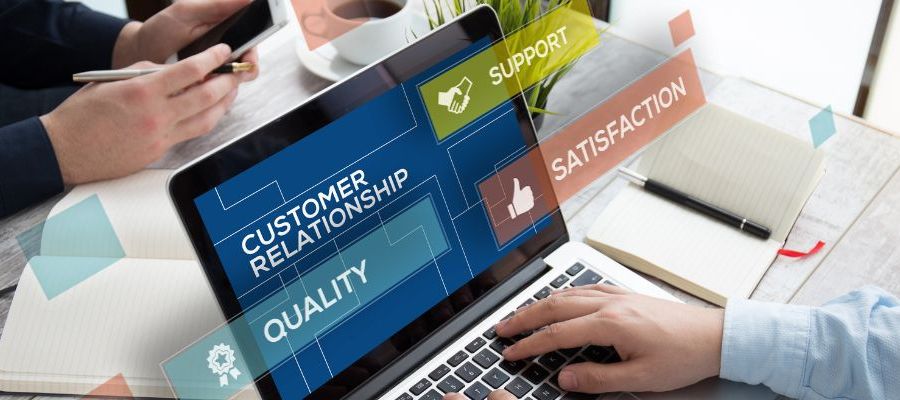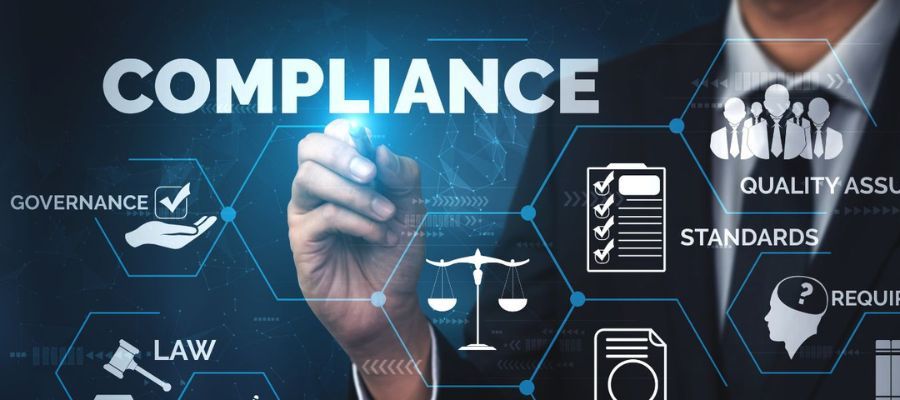In today’s fast-paced and interconnected world, the digital landscape has become integral to every business operation. Whether managing internal processes, engaging with customers, or staying competitive, having a robust IT infrastructure is crucial. This article delves into the essential IT solutions businesses need to navigate the digital landscape effectively.
1. Cloud Computing

Cloud computing has brought about a profound transformation in how businesses oversee their IT infrastructure. It allows companies to shift from traditional on-premises servers to virtualized, scalable resources hosted on remote data centers.
The advantages are manifold. To start, it minimizes capital expenses, as there is no requirement to invest in and upkeep physical hardware. Secondly, it offers unparalleled scalability, enabling businesses to adjust resources to meet changing demands quickly. Ultimately, it improves accessibility, enabling data and applications to be reached from any location with an internet connection.
Additionally, cloud providers offer various services, from computing power (IaaS) to fully managed applications (SaaS), catering to diverse business needs. In essence, cloud computing empowers businesses with the agility and cost-efficiency required to succeed in the digital age.
2. Cybersecurity Solutions

The importance of cybersecurity solutions cannot be overstated. Given the rising occurrence and complexity of cyberattacks, safeguarding sensitive data and ensuring uninterrupted business operations has become of utmost importance.
Comprehensive cybersecurity measures include the implementation of a firewall for monitoring and thwarting malicious network traffic, antivirus software to identify and eliminate threats, encryption protocols to safeguard data both during transmission and while stored, and the application of multi-factor authentication to fortify login security.
Regular security audits and employee training programs are equally essential to educate staff about potential threats and foster a culture of security awareness. Managed Security Service Providers (MSSPs) bring specialized expertise and round-the-clock monitoring to keep businesses ahead of evolving cyber threats, providing a comprehensive defense against the ever-present risks of the digital landscape.
3. Data Analytics and Business Intelligence

In the era of big data, businesses that can harness the power of data analytics gain a significant competitive edge. Data analytics tools enable organizations to collect, process, and analyze vast amounts of data, transforming it into actionable insights.
Tools like Tableau, Power BI, and Google Analytics offer dynamic visualizations and reporting capabilities that facilitate data-driven decision-making. Predictive analytics and machine learning models allow businesses to anticipate trends and customer behaviors, optimizing product development, marketing campaigns, and resource allocation.
By embracing data analytics and business intelligence, companies can stay agile, respond to market changes, and make informed choices that enhance efficiency and profitability.
4. Collaboration and Communication Tools

Effective communication and collaboration are fundamental to success in modern business. Collaboration tools like Slack, Microsoft Teams, and Zoom enable real-time communication, file sharing, and video conferencing.
These platforms transcend geographical boundaries, allowing remote teams to work seamlessly together. They enhance productivity by reducing the need for lengthy email exchanges and providing a centralized project management hub.
Moreover, they facilitate instant communication with clients and partners, improving customer service and stakeholder engagement. In today’s fast-paced business environment, collaboration and communication tools are essential for efficient teamwork and maintaining strong stakeholder relationships.
5. Customer Relationship Management (CRM) Systems

Customer Relationship Management (CRM) systems are important for businesses building and maintaining strong customer relationships. These platforms centralize customer data, enabling businesses to track interactions, manage leads, and automate marketing campaigns.
CRM solutions like Salesforce, HubSpot, and Zoho CRM offer lead scoring, pipeline tracking, and performance analytics features. They empower businesses to tailor their marketing efforts, personalize customer interactions, and improve customer retention rates.
CRM systems empower businesses to offer an all-encompassing perspective of customer interactions and preferences. This capability enables companies to enhance customer experiences, boost sales, and foster stronger brand loyalty.
6. Enterprise Resource Planning (ERP) Systems

Enterprise Resource Planning (ERP) systems serve as the central nervous system of an organization’s internal operations. They integrate various business functions into a single, unified platform, including finance, human resources, supply chain management, and procurement.
This streamlines operations reduces redundancy, and enhances visibility into business performance. Leading ERP providers like SAP, Oracle, and Microsoft Dynamics offer industry-specific solutions that cater to diverse needs.
ERP systems automate routine tasks, provide real-time data insights, and facilitate decision-making. With ERP, businesses can optimize resource allocation, improve inventory management, and respond swiftly to market changes, ultimately enhancing efficiency and competitiveness.
7. Internet of Things (IoT) Integration

The Internet of Things (IoT) has surfaced as a transformative force for businesses across diverse sectors. IoT devices, such as sensors, beacons, and wearable technology, generate vast real-time data. Incorporating this data into business operations enables organizations to fine-tune processes, minimize expenses, and enhance customer satisfaction.
For instance, in manufacturing, IoT sensors can monitor equipment health, enabling predictive maintenance to prevent costly breakdowns. In retail, beacons can send personalized offers to shoppers’ smartphones, enhancing engagement. IoT also plays a crucial role in agriculture, healthcare, and logistics, among other sectors.
Leveraging IoT integration empowers businesses to make data-driven decisions, automate processes, and innovate their products and services.
8. Mobile App Development

Mobile app development has become a fundamental component of a successful digital strategy. With the increasing use of smartphones and tablets, businesses must provide their customers a convenient and engaging mobile experience. Mobile apps offer a direct and personalized channel for interaction.
E-commerce companies can boost sales through user-friendly shopping apps, while service-oriented businesses can enhance customer engagement and loyalty. Mobile apps enable businesses to harness location data, push notifications, and in-app messaging for targeted marketing.
Moreover, they provide valuable data insights on user behavior and preferences. Embracing mobile app development constitutes a pivotal strategic step for businesses across diverse sizes and industries. It enables them to remain competitive and effectively respond to the dynamic demands of the contemporary digital landscape.
9. Compliance and Regulatory Solutions

Navigating the complex regulatory compliance landscape is crucial for businesses, especially in highly regulated industries like finance and healthcare. Compliance and regulatory solutions automate the tracking and reporting of adherence to industry-specific rules and standards.
Governance, Risk, and Compliance (GRC) platforms offer a comprehensive approach to managing compliance obligations. They streamline compliance workflows, provide real-time visibility into compliance status, and generate audit-ready reports.
Automated compliance solutions reduce non-compliance risk, which can lead to legal repercussions and financial penalties. Through anticipating regulatory shifts and taking proactive steps to meet compliance demands, businesses can operate with assurance, safeguard their reputation, and foster trust with both customers and partners.
Conclusion
In a time marked by swift technological progress, businesses must adopt these vital IT solutions to flourish in the digital realm. Each solution plays a pivotal role in enhancing efficiency, competitiveness, and customer satisfaction, from cloud computing to cybersecurity, data analytics to IoT integration.
By strategically implementing these technologies, businesses can adapt to the ever-changing digital landscape and lead the way in innovation and growth.






















